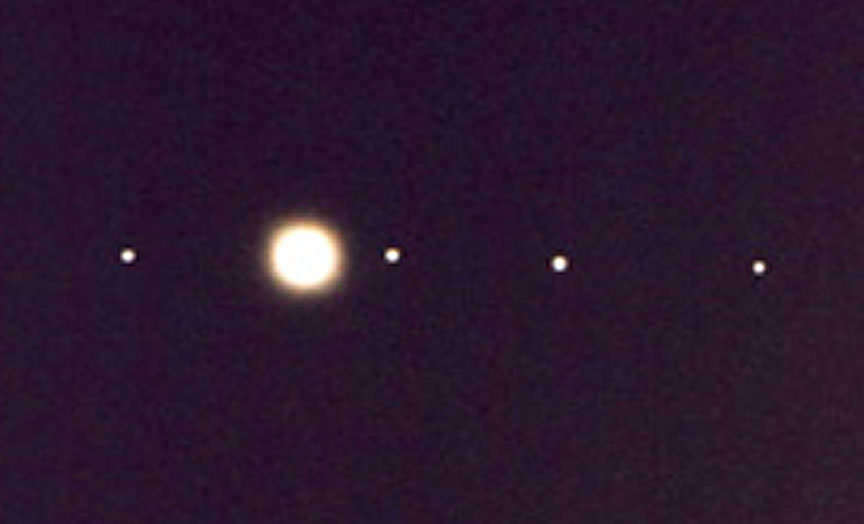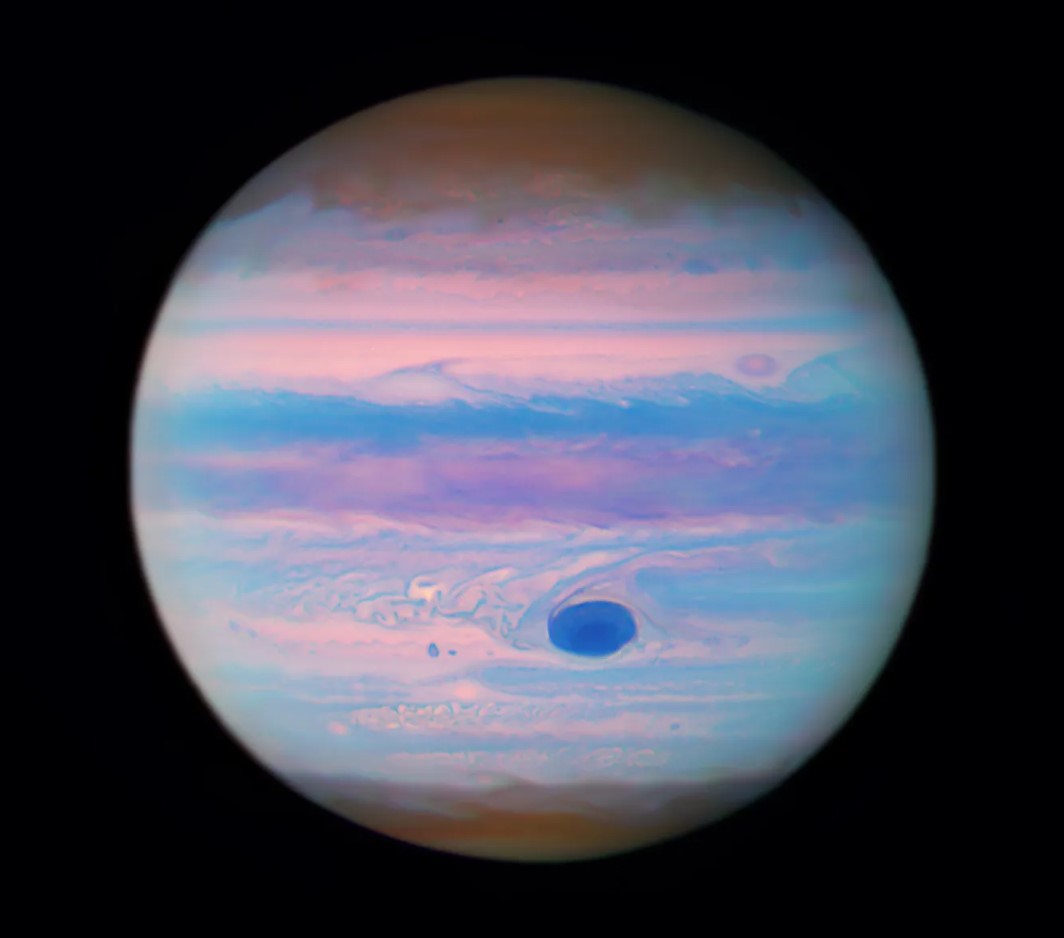Jupiter has gone pastel!
Check out this ultra-cool image of Jupiter taken by the Hubble Space Telescope. This is a color composite picture of Jupiter seen in ultraviolet, which reveals different features in Jupiter’s atmosphere. One feature that stands out is Jupiter’s Great Red Spot — it is blue in this image!
This giant storm looks unusually dark in ultraviolet because high-altitude hazes over the huge storm absorb UV photons before they are reflected back to Earth. NASA said the data used to create this ultraviolet image is part of a Hubble proposal that looked at Jupiter’s superstorm systems. The researchers plan to map deep water clouds using the Hubble data to define 3D cloud structures in Jupiter’s atmosphere.
Ultraviolet light are short, high-energy wavelengths of light beyond what the human eye can see. Ultraviolet light reveals phenomena such as light from the hottest and youngest stars which are usually hidden in the dust of local galaxies; it can also reveal the composition, densities, and temperatures of the material between stars.
Here’s another Hubble view of Jupiter in multiple wavelentths, including ultraviolet from 2020:

Since the human eye cannot detect ultraviolet light, colors in the visible light spectrum are assigned to the images, each taken with a different ultraviolet filter.
This image was released in honor of Jupiter reaching both perigee and opposition. Perigee means when Jupiter reached its closest point to Earth this year, which occurred on November 1-2, 2023 (depending on what time zone you are in — 21 UTC or 4 p.m. EDT.) The distance between the Earth and Jupiter at that time was 595 million km (370 million miles)
Opposition is when another object — Jupiter in this case – is opposite the Sun in our sky. That means Earth comes between the Sun and Jupiter. This happens on of November 2-3, 2023 at 5 UTC (12 a.m. CDT).
An object’s opposition also usually means it’s a great time to observe it from Earth. If you look to the east in the evenings, you’ll see a very bright object – that’s Jupiter. A look even through a small telescope or binoculars will reveal the four largest moons of Jupiter. Three of those moons are bigger than Earth’s Moon, and one of them, named Ganymede, is the largest moon in the Solar System.


